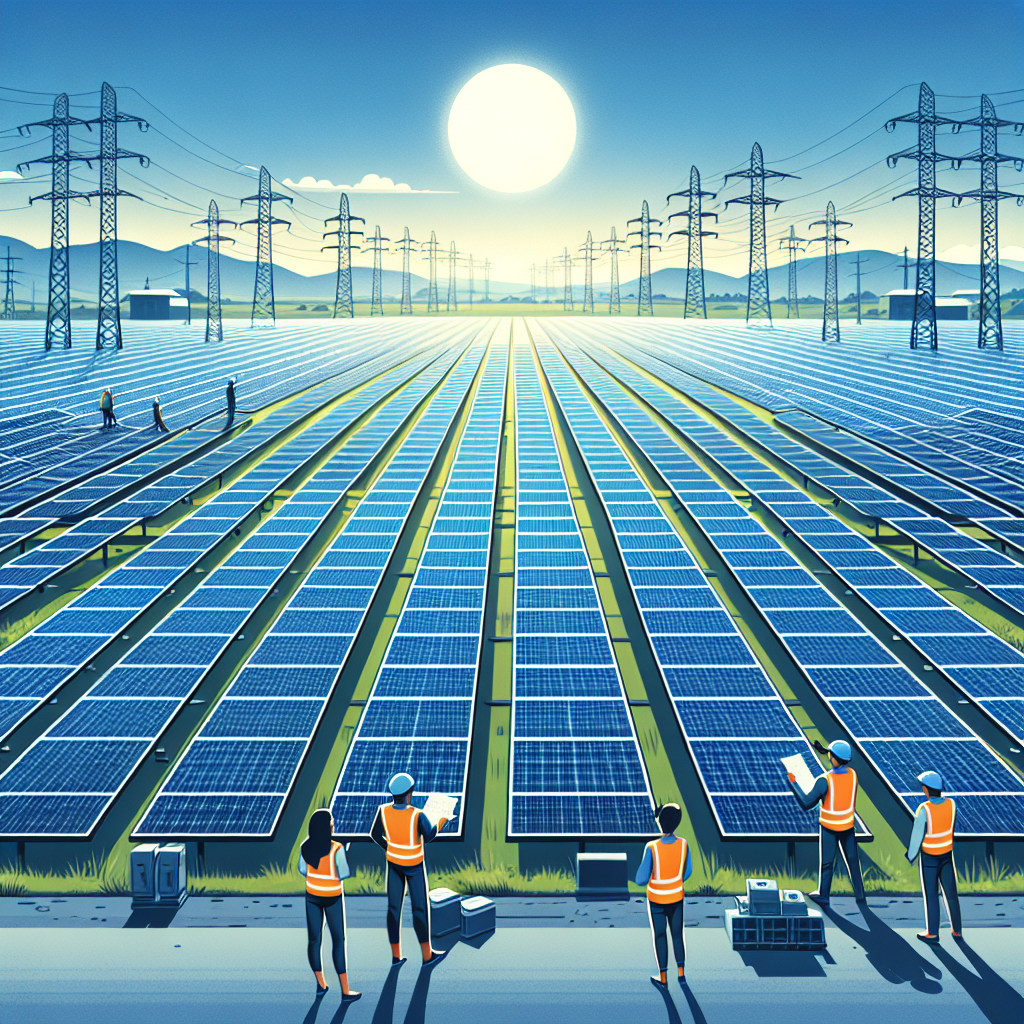Australia's Ambitious Solar Project Nears Milestone with Environmental Approval
Australia's significant 30 billion AUD solar project, aimed at exporting electricity to Singapore via submarine cable, has received environmental approval. Backed initially by prominent business figures, the project's progress symbolizes a green energy shift despite political debates on energy strategies.

- Country:
- United Kingdom
An ambitious plan to build a massive solar farm in remote northern Australia has moved one step closer after the Australian government granted environmental approvals for the 30 billion AUD (USD 19 billion) project on Wednesday.
Australian company Sun Cable plans to construct a 12,400-hectare solar farm that will transmit electricity to the northern city of Darwin via an 800-kilometer overhead transmission line, and subsequently to industrial customers in Singapore through a 4,300-kilometer submarine cable. The Australia-Asia PowerLink project aims to deliver up to six gigawatts of green electricity annually. Australian Environment Minister Tanya Plibersek highlighted the project's potential to transform Australia into a renewable energy superpower and boost its economy. "This massive project is a generation-defining piece of infrastructure," Plibersek stated. "It will be the largest solar precinct in the world – and heralds Australia as a world leader in green energy."
Initially supported by Australian mining magnate Andrew Forrest and Atlassian co-founder Mike Cannon-Brookes, the project's plans were spotlighted during a state visit by Singapore's then Prime Minister Lee Hsien Loong and Australian Prime Minister Anthony Albanese as part of a 'Green Economy' agreement in 2022. Sun Cable faced a setback in January 2023 when it entered voluntary administration due to a funding dispute between Forrest and Cannon-Brookes. However, by May, a consortium led by Cannon-Brookes' Grok Ventures had acquired the company, finalizing the takeover in September 2023.
Sun Cable Australia's Managing Director Cameron Garnsworthy expressed satisfaction with overcoming a major regulatory hurdle and indicated the company's focus would now shift to the next planning stage aiming for a Final Investment Decision by 2027. Electricity supply from the project is expected to commence in the early 2030s.
Energy has remained a contentious issue in Australia, heavily reliant on coal and gas, despite its adverse per capita greenhouse gas emissions record. Australia's major political parties differ sharply on the country's energy future. The main opposition party has announced plans to build the first nuclear power plants by 2035, contrasting with the current government's push for renewable energy. "Australians have a choice between a renewable energy transition already creating jobs and driving down prices, or paying for an expensive nuclear fantasy that may never happen," Plibersek commented.
(With inputs from agencies.)










